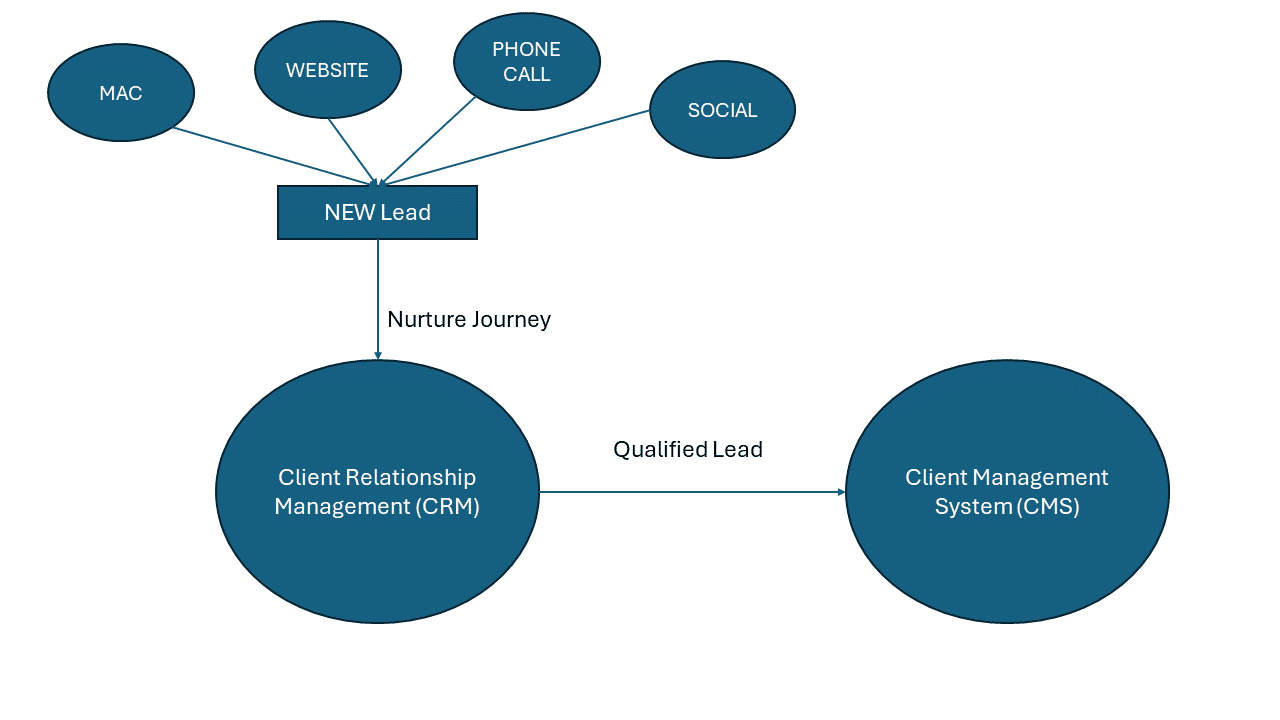Understanding the Critical Difference Between CRM and CMS in Aged and Disability Care
In the aged and disability care sectors, effective management tools are not just beneficial; they are essential. For businesses operating within these industries, distinguishing between Customer Relationship Management (CRM) systems and Client Management Systems (CMS) is crucial. Both systems serve distinct but complementary roles in the management and growth of your business.
The Role of a CRM
A CRM system is primarily a sales and marketing tool. It's designed to attract leads and nurture them through a journey until they become clients. This journey is particularly crucial in the highly competitive and sensitive environment of aged care and NDIS services.
A CRM system acts as your first point of contact for potential clients. For example, when a potential client appears on the My Aged Care portal, the CRM is where you capture this lead. It then facilitates a multi-step journey involving multiple communications, such as emails, SMS, and other digital messaging tools. This process helps capture vital details and qualify the lead as a potential client for your services.
Moreover, a CRM plays a pivotal role in your marketing campaigns. It integrates with digital marketing tools like social media, email campaigns, and your website, allowing you to reach a broader audience more effectively and personalize your communication based on the data collected.
Transitioning to a CMS
Once a lead is qualified, the role of a CRM transitions to that of a Client Management System. A CMS is tailored to manage ongoing client relationships, particularly after they have signed on for your services. It manages crucial aspects like the client’s aged care or NDIS package, care plans, and the scheduling of staff and volunteers to jobs.
It's important to note that while some CMS products offer features like waitlisting, these are not substitutes for the lead nurturing and sales processes provided by a CRM. The CMS focuses more on operational efficiency and client care after the sales cycle is completed.
Why Both Are Essential
While a CRM focuses on the initial part of the client journey, a CMS takes over once the client commits to your service, ensuring a smooth transition and ongoing management. This distinction is significant because each system is optimized for different stages of the client lifecycle.
Utilizing both systems effectively allows for a seamless flow from marketing and lead generation to service delivery and management. This integration ensures that potential clients are not only attracted to your services but are also well-managed and satisfied once they decide to engage.
High Level View

Conclusion
In summary, while a CRM and a CMS might seem similar, they serve majorly different functions within your business. A CRM is your growth engine, helping to attract and qualify leads. In contrast, a CMS is your operational backbone, managing those qualified leads as clients and ensuring they receive the care and services they need. Both are indispensable in the pursuit of excellence in aged and disability care services.
If you need advice on what CRM or CMS to choose, THREEDIGITAL has implemented many of these systems and can help you make the right choice for your business needs.


